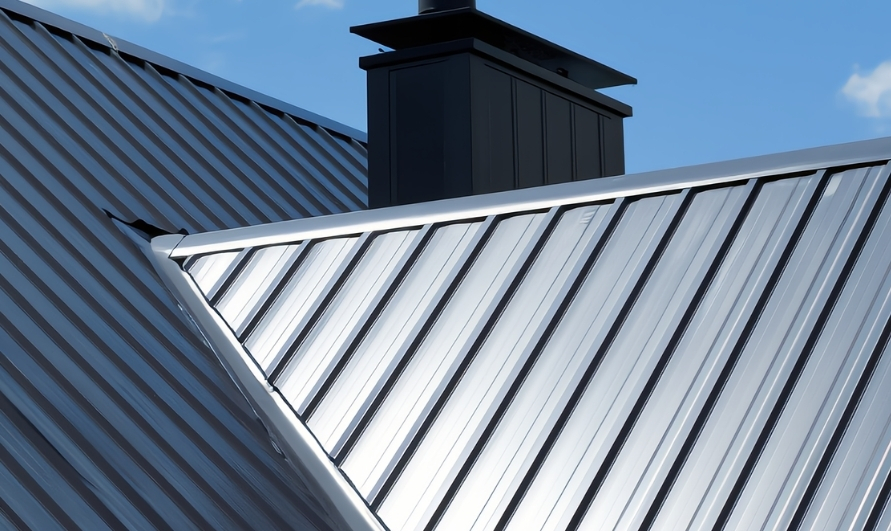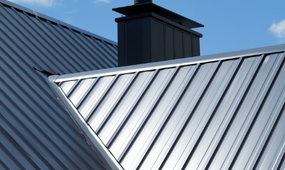
What You Need to Know About Standing Seam Roofing Systems
In recent years, standing seam roofing systems have become one of the most preferred modern roofing solutions, thanks to their sleek appearance and durable structure. Chosen increasingly over traditional tiled roofs, these systems stand out with their advantages such as waterproofing, longevity, and low maintenance requirements. In this article, we’ll share general information about the different types of standing seam roofs.
What Is a Standing Seam Roof System?
A standing seam roof system is a roofing method created by interlocking metal panels that have been formed using special machines. Without the need for screws or drilling, these panels are installed using concealed clips, providing both aesthetic appeal and effective waterproofing. The absence of visible screw heads on the surface offers a clean and modern architectural finish.
Most Commonly Preferred Standing Seam Roof Materials
Standing seam roofs are available in various metals to suit different needs and tastes. Here are the most widely used material types:
-
Aluminum Standing Seam Roof
Known for its corrosion resistance, light weight, and long lifespan. It is an ideal choice for humid areas like coastal regions. Being recyclable also makes it popular in eco-friendly projects. -
Titanium Standing Seam Roof
Made from zinc alloy with titanium additives, these systems offer superior corrosion resistance and high strength. Commonly used in modern architectural designs. -
Metal Standing Seam Roof
Produced mainly from galvanized steel or aluminum, these roofs are economical and sturdy, making them popular in industrial buildings. -
Copper Standing Seam Roof
Copper roofs develop a unique patina over time, giving them a distinctive color. They are favored especially in historic restoration projects for their aesthetic appeal and durability. -
Zinc Standing Seam Roof
Zinc has a self-healing property that makes it resistant to scratches and impacts. It is a long-lasting, low-maintenance roofing solution. -
Galvanized Standing Seam Roof
Offers a cost-effective alternative. Made from galvanized steel sheets, these roofs stand out for their durability and are often used in large-scale constructions.
Advantages of Standing Seam Roofing Systems
-
Waterproof: The seamless installation without screws guarantees maximum water resistance.
-
Longevity: Depending on the material, it can last between 30 and 100 years.
-
Aesthetic Appearance: Provides a smooth surface compatible with modern architecture.
-
Low Maintenance: Requires less upkeep compared to other roofing systems.
-
Eco-Friendly: Many standing seam roof materials are recyclable.
Which Standing Seam Roof Is Right for You?
The ideal standing seam roofing system depends on your building’s location, architectural style, budget, and long-term expectations. For example, buildings near the sea should opt for materials like aluminum or zinc that resist corrosion. If aesthetics are a priority, copper or titanium-zinc options might be better suited.
Conclusion
Standing seam roofing systems offer a durable and secure roofing solution for those seeking long-lasting protection. It is important to consult an expert before deciding on the material type to ensure both the visual appeal and structural success of your project.

